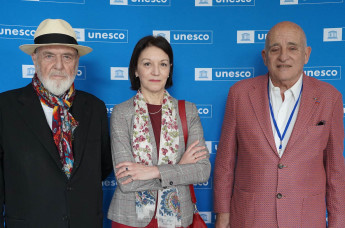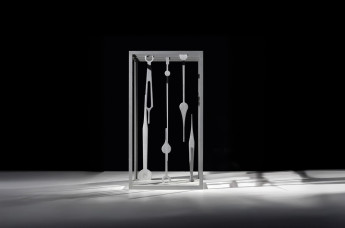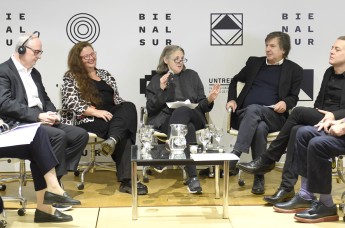The Japanese artist Katsuhiko Hibino will give two lectures, together with Diana Wechsler, artistic-academic Director of BIENALSUR. The first will take place on August 28 at 11am in MUNT (Gral. José de San Martín 1545), San Miguel de Tucumán; and the second will take place in Caseros, province of Buenos Aires, on August 30 at 18.30, at the headquarters of MUNTREF (Valentín Gómez 4838).
After a festival held in mid-August at the University of Arts in Tokyo, the Turn/BIENALSUR project restarted its activities in the sacred city of Quilmes, in Tucumán.
In both lectures, Katsuhiko Hibino will narrate details of this experience in which Japanese artists, artisans from this native town and 300 children from schools in Amaicha, Bañado and other nearby areas, participated in an unprecedented exchange of knowledge between two ancestral cultures.
After three months of workshops, and after the Tokyo festival, the knowledge exchange between Japanese artists, the artisans of the native peoples of the Diaguita Calchaquí Valley and more than 300 children from the schools of the area was resumed. They gathered in the sacred city of Quilmes, an ancient pre-Hispanic settlement and last bastion of resistance against the Spaniards of this town; from there about 1.700 survivors had been forced to travel on foot to Buenos Aires and to leave the sacred city. Only 400 of them had managed to reach Buenos Aires, at the current area of Quilmes.
In the meetings in the Argentine Northwest the Japanese Sakioro weaving technique was taught in one of the workshops, and ceramic techniques in another, and a series of human figures in clay were produced (with earth collected in Tucumán, but also in the Buenos Aires Quilmes area) representing "the walkers", protagonists of that exile. The baking was carried out using ancestral techniques.
In Quilmes, this soulful action, ended with a symbolic ascent of the "walkers" - the clay figures – up to the sacred city. The pieces from the Turn workshops can be visited until August 31 in an exhibition at the Museo Timoteo Navarro (9 de Julio 44, San Miguel de Tucumán), with free admission.
The "Turn" project was born as an artistic activity of social inclusion that seeks the exchange between people with different histories and knowledge, in minority communities, with the objective of provoking a transformation in the way of looking at and thinking about the surrounding world.




